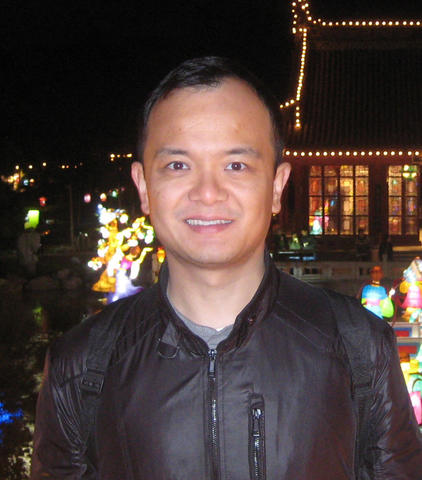
Ruifeng Cao, MD, Ph.D.
EMAIL: [email protected]
Research Interests:
Circadian (~24 h) rhythmicity is a fundamental property of nearly all living beings on this planet. In mammals, the master pace maker is located in the suprachiasmatic nucleus (SCN) of the hypothalamus. The SCN relays photic information from the retina to the brain to synchronize endogenous rhythms to ambient light/dark cycles. Desynchronization of the endogenous rhythms can lead to fatigue, insomnia and memory loss as seen in jet lag. Circadian clocks also exist in a variety of extra-SCN regions throughout the brain. The rhythms in these regions modulate brain activities on a daily basis. A variety of neurophysiological processes are rhythmically regulated by the circadian clock, which accounts for the time-of-day variations in our sensory, motor, memory and social functions. Conversely, disruption of circadian rhythms has been reported in patients with neurological and psychiatric disorders. My lab is interested in molecular signaling mechanisms that orchestrate daily rhythms in our brain and how their dysregulation contributes to various brain diseases. We are particularly interested in the role of mammalian target of rapamycin (mTOR) signaling and mechanisms that control mRNA translation in the brain. The lab utilizes a combination of molecular, cellular and behavioral technologies, including polysome profiling, RNA sequencing, qRT-PCR, Western blotting, immunocytochemistry, electrophysiology, confocal microscopy, viral-mediated gene silencing and animal behavioral analysis (e.g., circadian, social and memory tests, EEG). A variety of model systems, including cell culture, organotypic slice culture, and whole animals (transgenic and knockout mice) are employed.
Selected Publications:
(For a comprehensive list of recent publications, refer to PubMed, a service provided by the National Library of Medicine.)
- Lorsung E, Karthikeyan R, Cao R. Biological timing and neurodevelopmental disorders: A role for circadian dysfunction in autism spectrum disorders. Front Neurosci. 2021 Mar 12;15:642745.
- Pathak SS, Liu D, Li T, de Zavalia N, Zhu L, Li J, Karthikeyan R, Alain T, Liu AC, Storch KF, Kaufman RJ, Jin VX, Amir S, Sonenberg N, Cao R. The eIF2α Kinase GCN2 Modulates Period and Rhythmicity of the Circadian Clock by Translational Control of Atf4. Neuron. 2019 Nov 20;104(4):724-735.
- Liu D, Stowie A, de Zavalia N, Leise T, Pathak SS, Drewes LR, Davidson AJ, Amir S, Sonenberg N, Cao R. mTOR signaling in VIP neurons regulates circadian clock synchrony and olfaction. Proc Natl Acad Sci U S A. 2018 Mar 19;. PMID: 29555746
- Gantois I, Khoutorsky A, Popic J, Aguilar-Valles A, Freemantle E, Cao R, Sharma V, Pooters T, Nagpal A, Skalecka A, Truong VT, Wiebe S, Groves IA, Jafarnejad SM, Chapat C, McCullagh EA, Gamache K, Nader K, Lacaille JC, Gkogkas CG, Sonenberg N. Metformin ameliorates core deficits in a mouse model of fragile X syndrome. Nature Med. 2017;23(6):674-77.
- Cao R, Gkogkas CG, de Zavalia N, Blum ID, Yanagiya A, Tsukumo Y, Xu H, Lee C, Storch KF, Liu AC, Amir S, Sonenberg N. Light-regulated translational control of circadian behavior by eIF4E phosphorylation. Nature Neurosci. 2015;18:855-862.
- *Gkogkas CG, *Khoutorsky A, Cao R, Giannakas N, Kaminari A, Aguilar-Valles A, Fragkouli A, Nader K, Konicek BW, Graff JR, Tzinia AK, Lacaille JC, Sonenberg N. Pharmacogenetic inhibition of eIF4E-dependent Mmp9 mRNA translation reverses Fragile-X syndrome-like phenotypes. Cell Rep. 2014;9:1742-1755.
